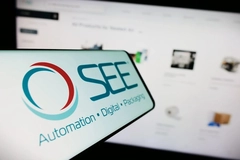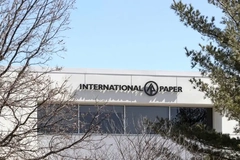PulPac CCO: How molded fiber can replace plastics in food packaging globally
The molded fiber market is expanding rapidly as consumers and regulators increasingly demand sustainable alternatives to plastic, according to Sanna Fager, chief commercial officer at PulPac.
Fager believes that molded fiber, especially Dry Molded Fiber, is a key part of the future of packaging.
“Its scalability and resource efficiency make it a strong alternative to single-use plastics, particularly in the food packaging industry. While some applications may still require other materials, Dry Molded Fiber offers significant potential to reduce plastic use,” asserts Fager.
The F&B sector is experiencing significant growth, with innovations like PulPac’s Dry Molded Fiber providing cost-effective, scalable and resource-efficient solutions.
PulPac’s Dry Molded Fiber is scalable and resource-efficient, presenting a viable alternative to single-use plastics.“A great example is our recent Bottle Collective collaboration with PA Consulting, where Diageo tests Dry Molded Fiber bottles for iconic brands like Baileys and Johnnie Walker.
Regionally diverse demands
Fager says there are regional differences regarding demand for molded fiber packaging.
“Europe is leading with strong regulations against single-use plastics, while North America sees growing demand from brands aiming to meet consumer expectations for sustainability,” she explains.
“In Asia, food packaging demand is increasing due to regulatory changes. Dry Molded Fiber’s adaptability allows us to meet these diverse regional needs.”
PulPac is continuously innovating to meet global demands, says Fager.
“Our Dry Molded Fiber technology offers scalable, resource-efficient solutions — ranging from standard products like lids and trays to fully customized designs.”
Unlocking further applications PulPac and PA Consulting are testing Dry Molded Fiber bottles for Baileys.
PulPac and PA Consulting are testing Dry Molded Fiber bottles for Baileys.
PulPac is continuously optimizing machinery for efficiency, advancing tooling and product design and exploring new materials and barriers to unlock more applications.
“To help companies evaluate Dry Molded Fiber and make informed decisions about its fit for their needs, we’ve streamlined and conceptualized an application development project offer. This fall, at events like PackExpo, Sustainable Packaging Summit and TokyoPac, we’re bringing this opportunity to the forefront. We’re excited to connect with companies looking to make a positive environmental impact through innovative packaging,” says Fager.
Earlier this month, Packaging Insights explored the potential of molded fiber to replace single-use plastics and other material alternatives in the European and US foodservice sectors. We spoke to Natasha Valeeva, senior analyst for Packaging and Logistics at RaboResearch, about regulatory pressures and technological advancements.











